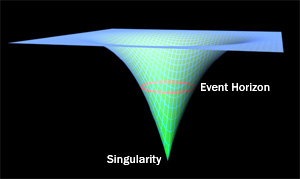 What does it really matter how our origins came about?
What does it really matter how our origins came about?On the one hand, we can claim by faith that God did it in either complete unvariated forms, or incomplete forms that are being guided to completion. But that is, afterall, simply a faith-claim.
On the other hand, we can sift the available evidence and cajole various incomplete theories out of the academic ether: Darwinian natural selection, intelligent design, theistic evolution, et al. But in this case we still have to concede that we really don't know the details concerning our origins.So given that both the fideistic approach to origins (God did it), and the naturalistic approach (a collusion of molecules did it) are ultimately best-guess scenarios, wouldn't it be more rational to concede agnosticism on this issue?
 From my perspective, remaining agnostic on the issue of origins seems the only reasonable position. Perhaps that's being overly pragmatic; perhaps it's being supremely uncommitted. In either case, the issue of origins is purely academic and really shouldn't provoke such insipid controversy between mature thinkers -- be they scientists, God-lovers, or neither.
From my perspective, remaining agnostic on the issue of origins seems the only reasonable position. Perhaps that's being overly pragmatic; perhaps it's being supremely uncommitted. In either case, the issue of origins is purely academic and really shouldn't provoke such insipid controversy between mature thinkers -- be they scientists, God-lovers, or neither.Thoughts?
5 comments:
From my perspective, remaining agnostic on the issue of origins seems the only reasonable position.
Then according to you, maybe or maybe not a god fairy hiding behind the clouds, used a magic wand to create the first life out of nothing.
And you think that's reasonable? I think it's a good way to make human progress come to a complete stop. You don't want to know what I think of people who invoke magic fairies to solve scientific problems.
Please, the next time you visit the flat-earther at APOLOGIA, please tell him for me that he's a worthless cowardly know-nothing anti-science moron. Thanks.
Here's a thought: what if God created the world naturally, in the form of a collision of molecules?
What if natural explanations don't rule out God?
What is it for something to happen "naturally"?
What causes things to happen "naturally"?
Human Ape,
I seriously doubt Chris is agnostic about THAT account of the origin of life.
Human Ape,
Aside from your entertaining vitriol, I have nothing really to say to you about your quirky quips.
In any case, what progress are you talking about: moral, scientific, technological, philosophical? 'Progress' is a loaded word, and it'd be welcome here if you'd expand on your intention behind that word.
As for professor van der Breggen, he's a top-quality man, and I have no need to hurt him with your anger.
I think that I see what you mean Chris, but to clarify, what would keep you from then being agnostic about everything in the Bible?
Have you seen "The Star of Bethlehem"? I only saw the last half of it and I'm trying to decide if I should jump on the bandwagon or wait for it to end up in the category of y2k and the bible codes.
hmm... agnostic on origins.....
The idea of an origin seems as human to me as the idea of time. We can observe time because we have a memory. Without memory, there is no observation of time that we can be certain of as humans. How can a person say "I remember when I began being"? As far as I know we cannot know when contiousness begins in a human. We have rough approximations of when we think contiousness begins but who can know? How can we know? Origin requires a when.
Here's a thought for you in the form of a question. Why does there have to be a beginning?
Surely there would be no beginnings except that we have defined them as such.
Post a Comment